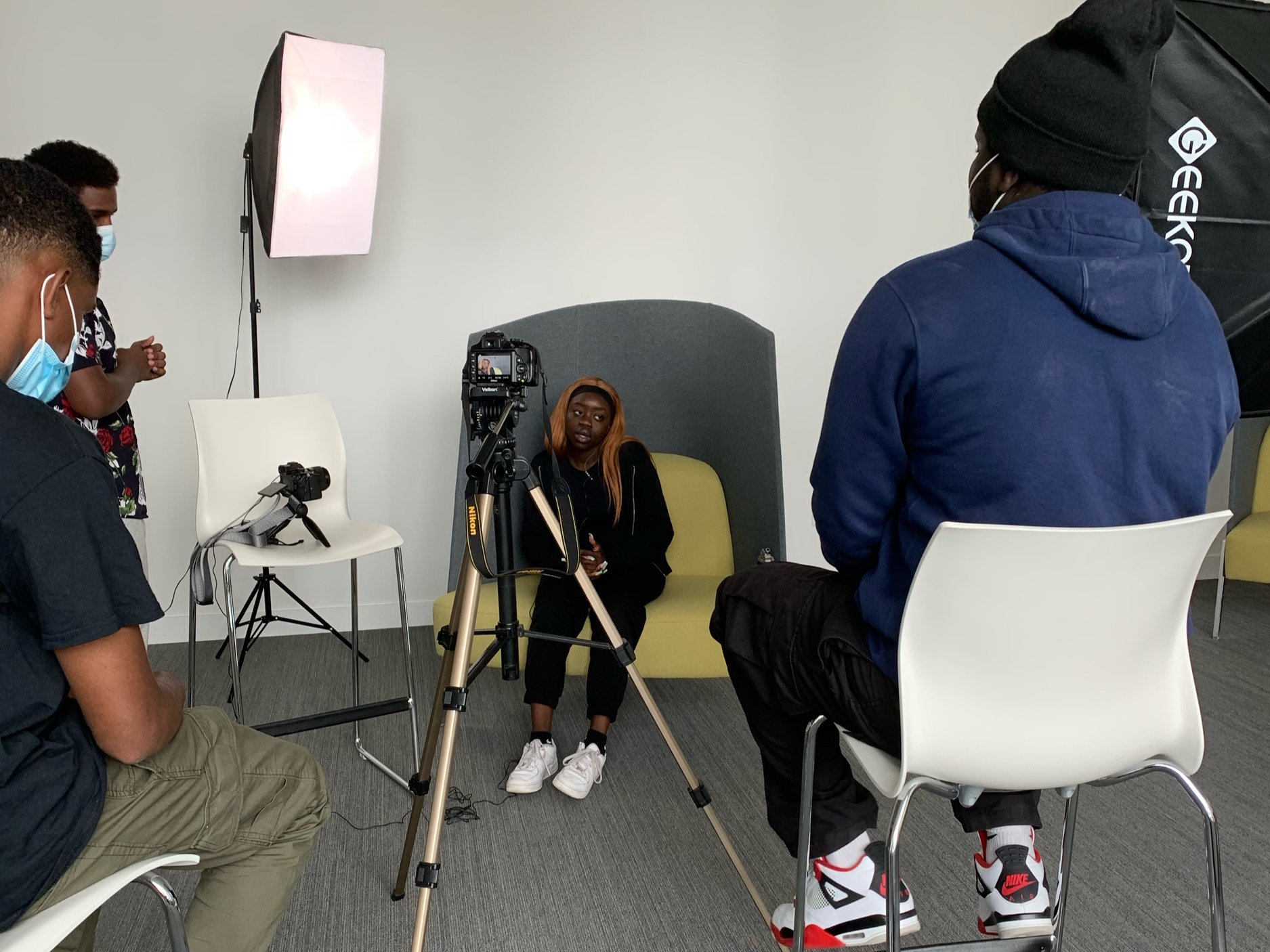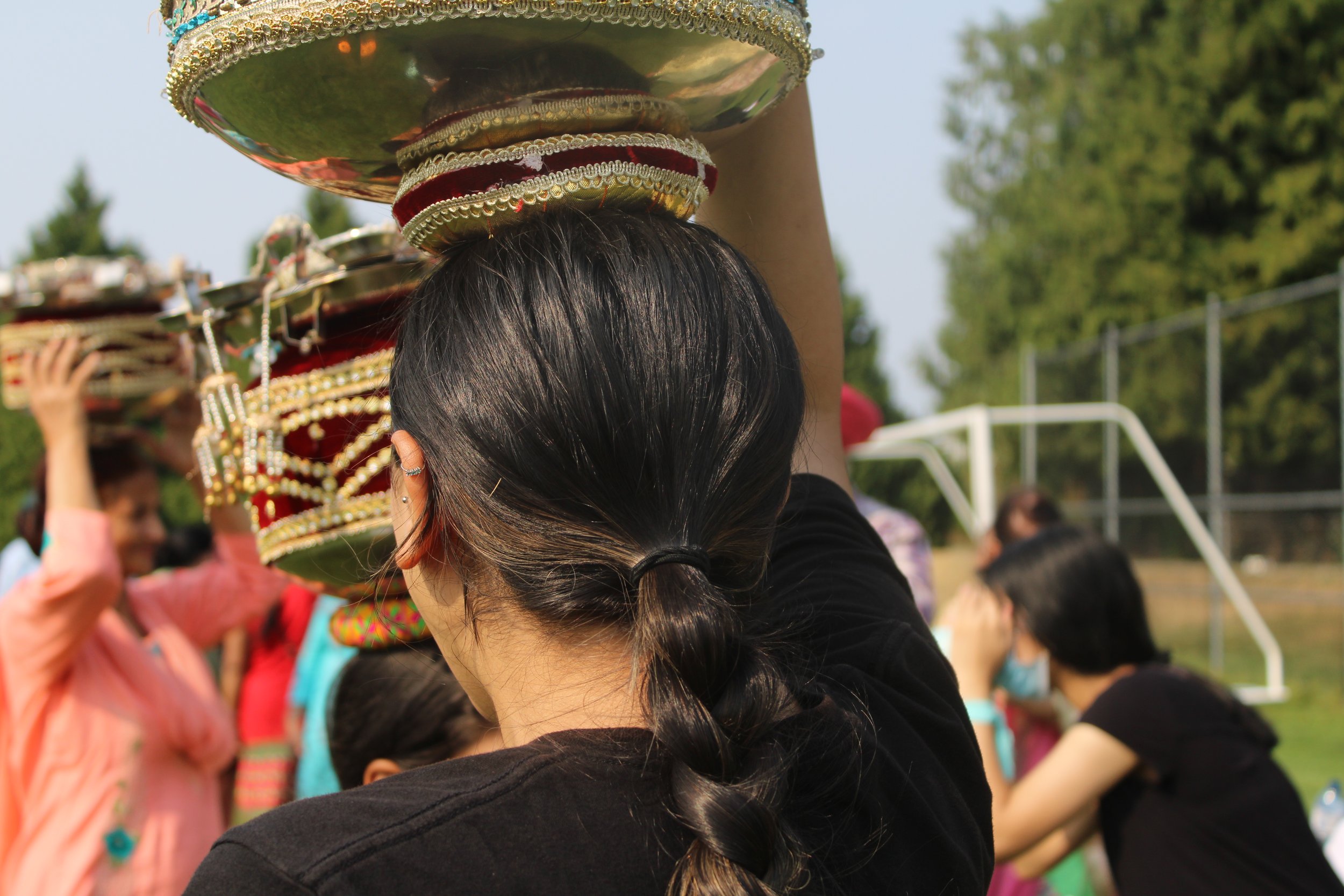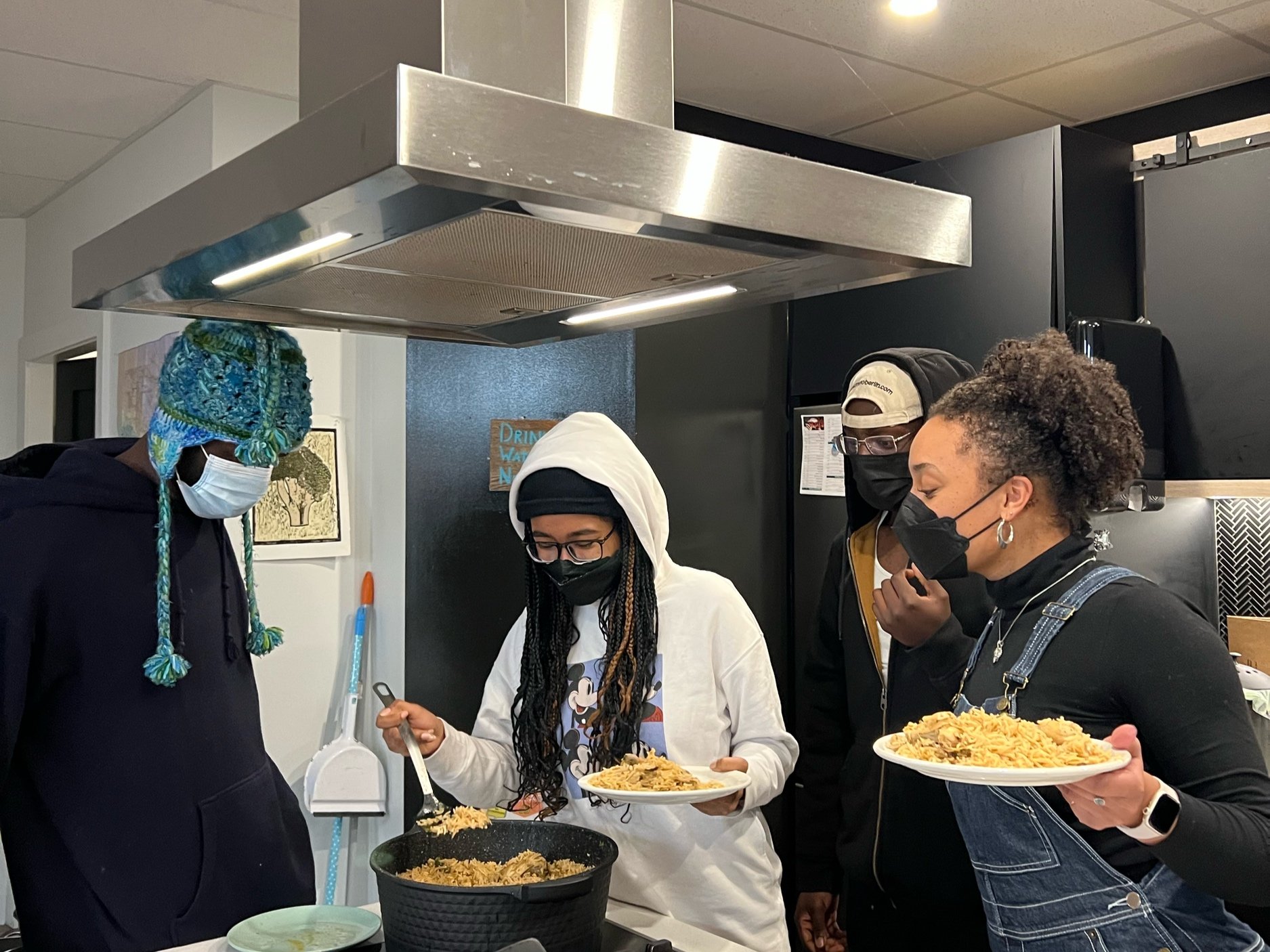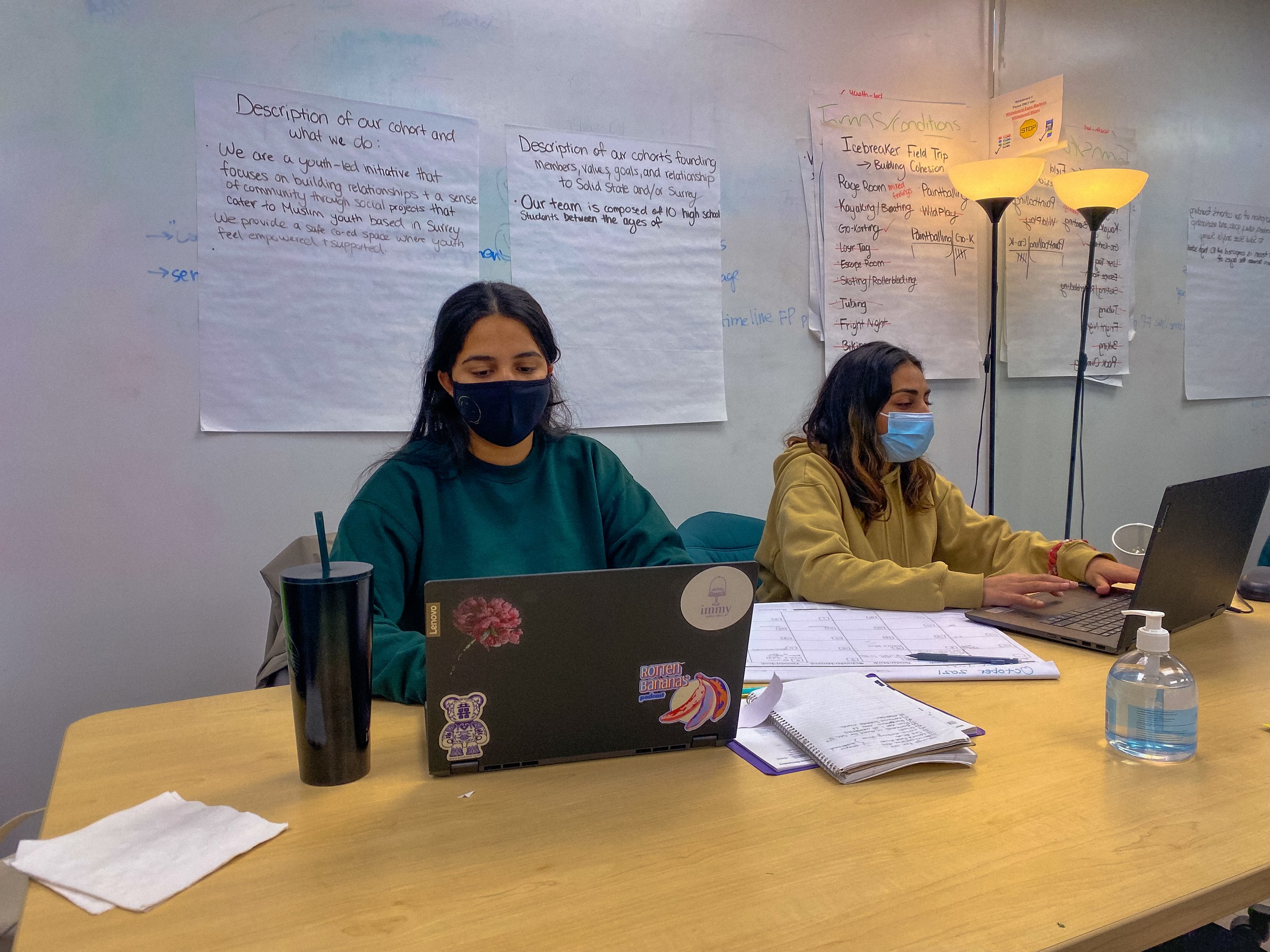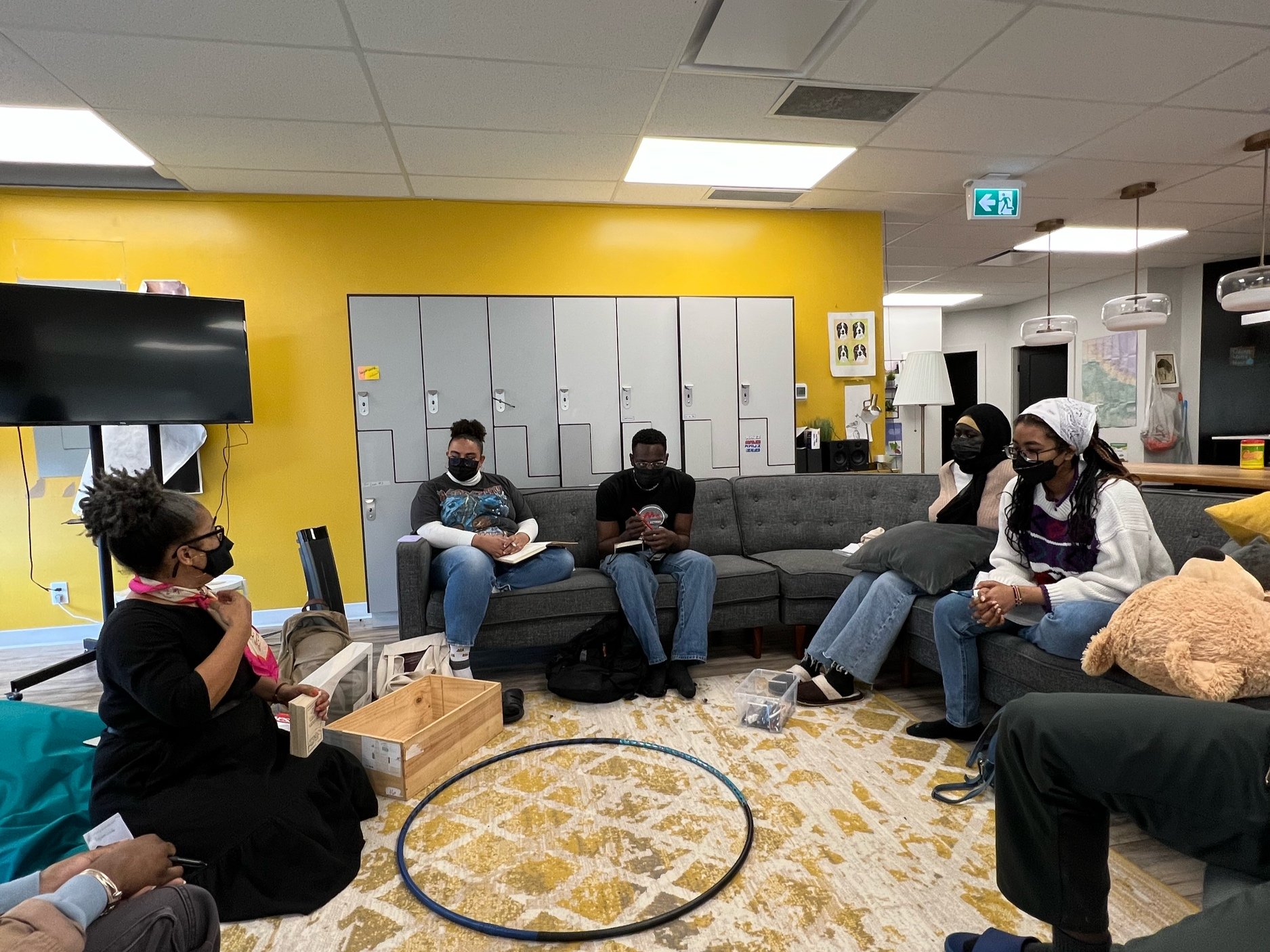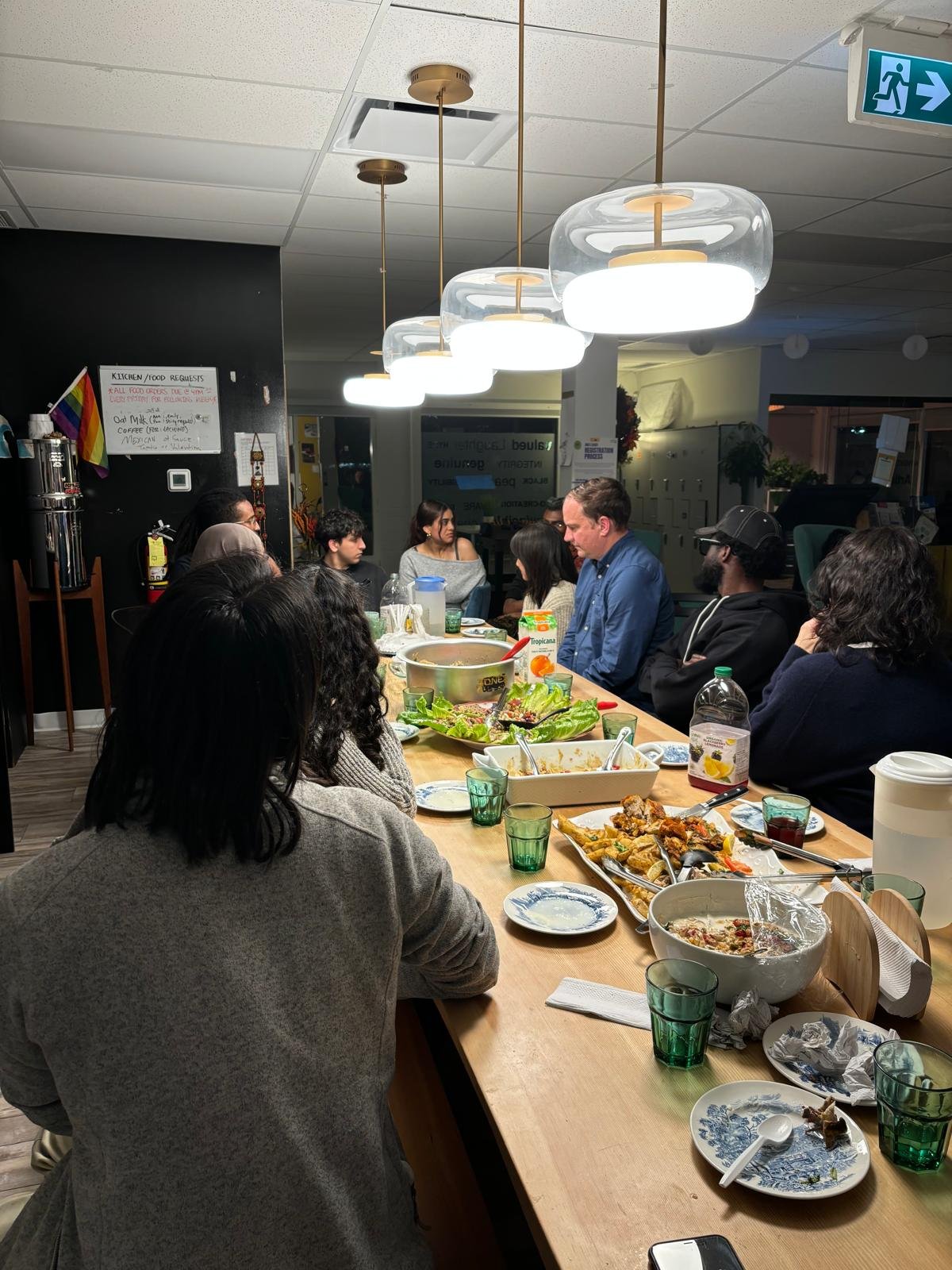We Build Co-ops
Solid State Community Industries mainly builds worker co-operatives, but not exclusively. We are building a solidarity economy in Surrey, so our projects and enterprises take all kinds of shapes and forms – bound together by a commitment to cooperativism and working past extractivism and exploitation.
Solid State is built by and for racialized communities who aim to create new kinds of non-extractive economic opportunities and relationships. Intercultural learning, solidarity and community is at the heart of the SSCI way of working and being together in the world.
Solid State offers training and mentorship, working space, business development, branding and website creation, fundraising, and more to support our enterprises.
Most importantly, we offer community and solidarity. For example, eating together is at the center of what we do, and all our best work happens around the table together.
Working with Solid State
Prospective cohorts pitch ideas for social purpose organizations and/or worker co-ops to our Co-Directors and our Co-op Development team and apply to join our community through our biannual intake process.
If accepted, cohorts collaborate with our Co-op Developers to further shape the idea. They work on creating a value set, business structure, and strategic and financial plan. Then Co-op Developers help the cohort get incorporated and learn governance and decision-making structures.
The cohort works with Solid State’s Communications team to build a website, branding kit, marketing strategy, and branded templates for social media and distributables.
The cohort meets with our Grants/Fundraising and social finance teams who help locate start-up funding and build financial management skills.
All our teams continue to work with enterprises for as long as it takes for them to become financially and organizationally self-reliant, but they are always part of our larger co-op of co-ops.
Solid State Day-to-Day
We have a warm and welcoming HQ with full-time cooks who serve halal meals daily to all staff, members and guests. Our space is open to all members for 24/7 use – including our kitchen, prayer room, meeting rooms and computers.
Through a variety of community partners we provide free counseling to any members and their families and connect members to a wide range of community services and partner organizations.
We build community by hosting year-round celebrations, commemorations, community dinners and events, some run by Solid State, some by our co-ops, and some by our many community partners.
We work very closely with all of our cohorts, learning how to grow projects with a long-term commitment to one another. Building and nurturing long-term friendships and commitments is the core of our model and how we are learning to build new ways of being and working together.
We are interested in building convivial enterprises that attend to their members’ whole selves and build new, better ways of working and being together. And alongside and entangled that work is trying to find durable, sustainable ways to generate real incomes and build real jobs.

